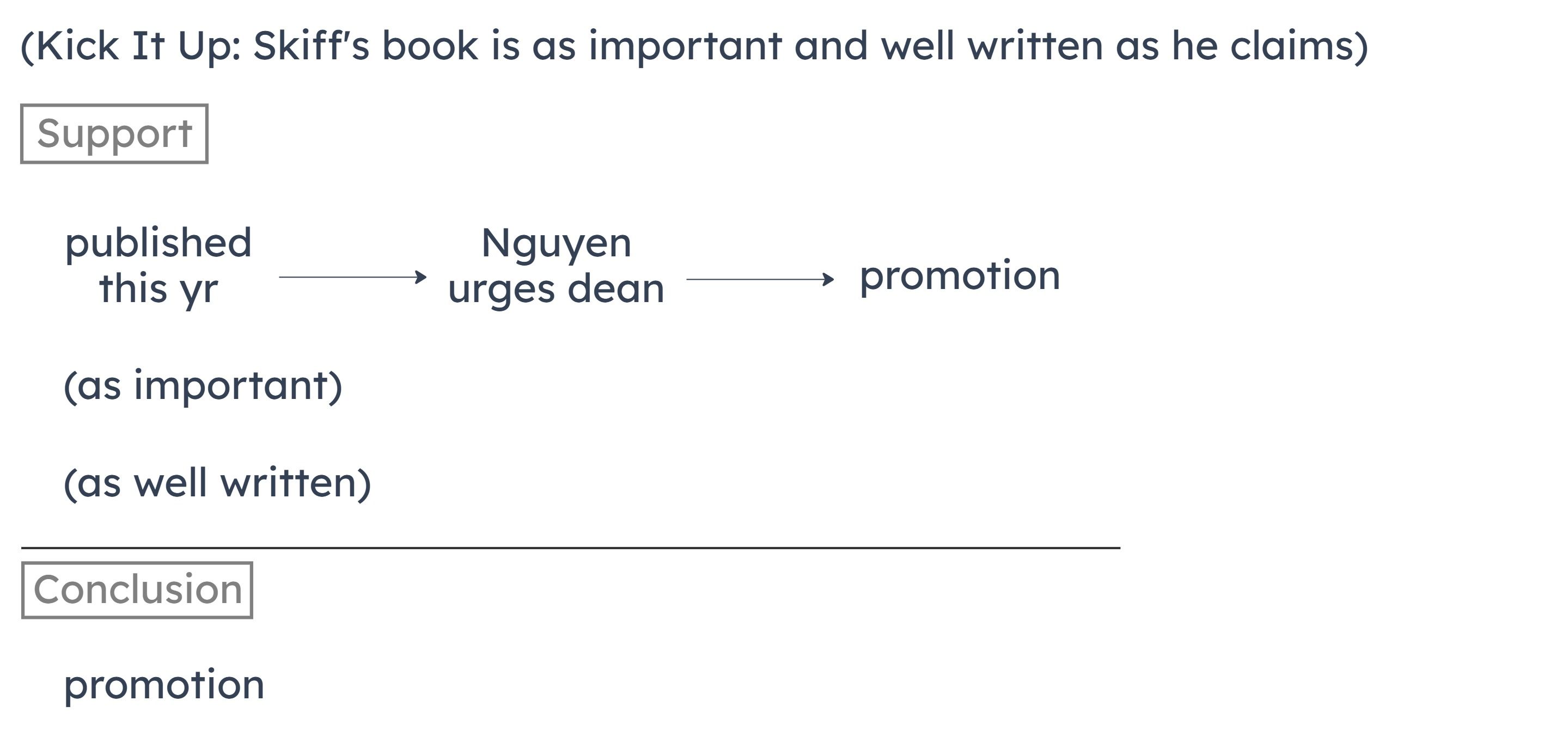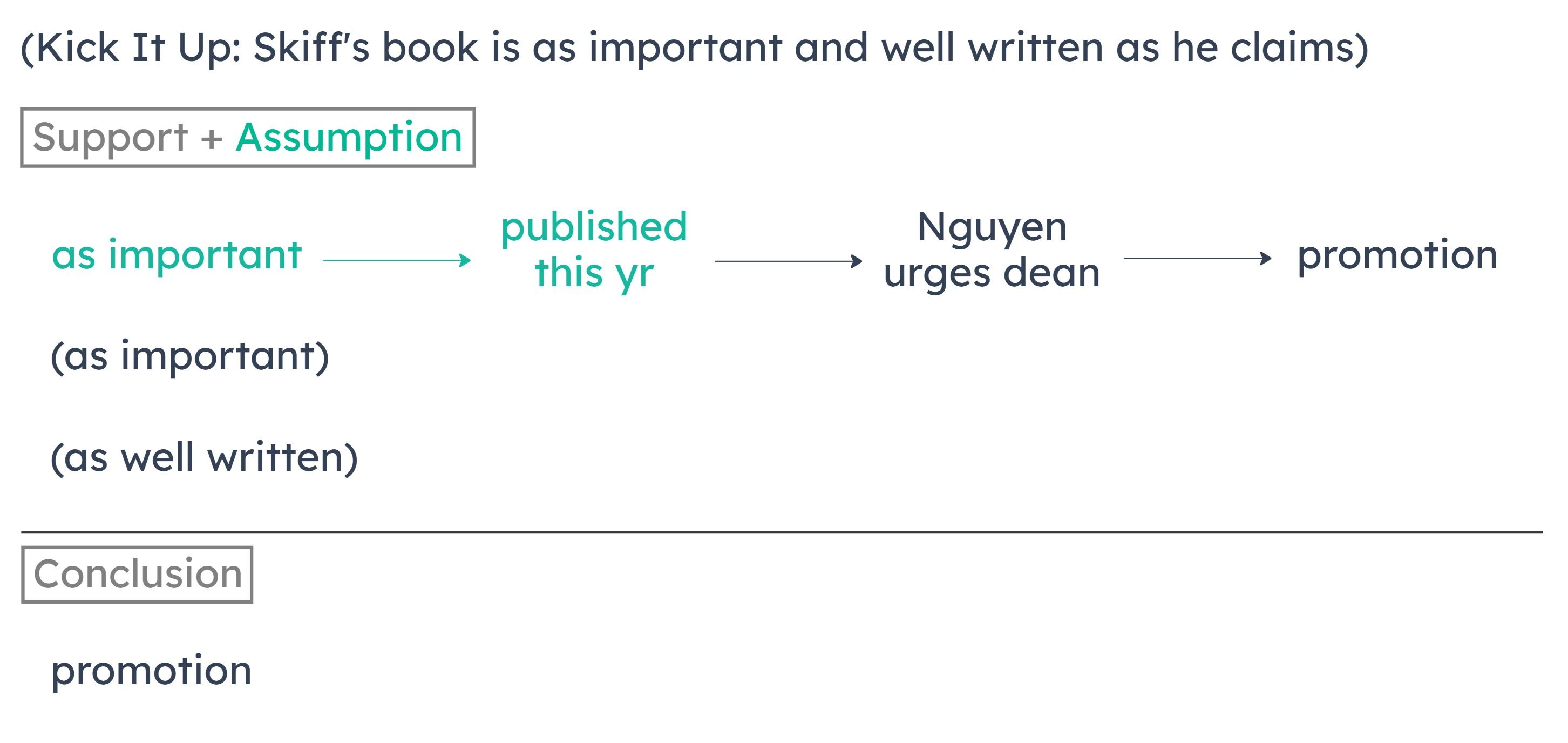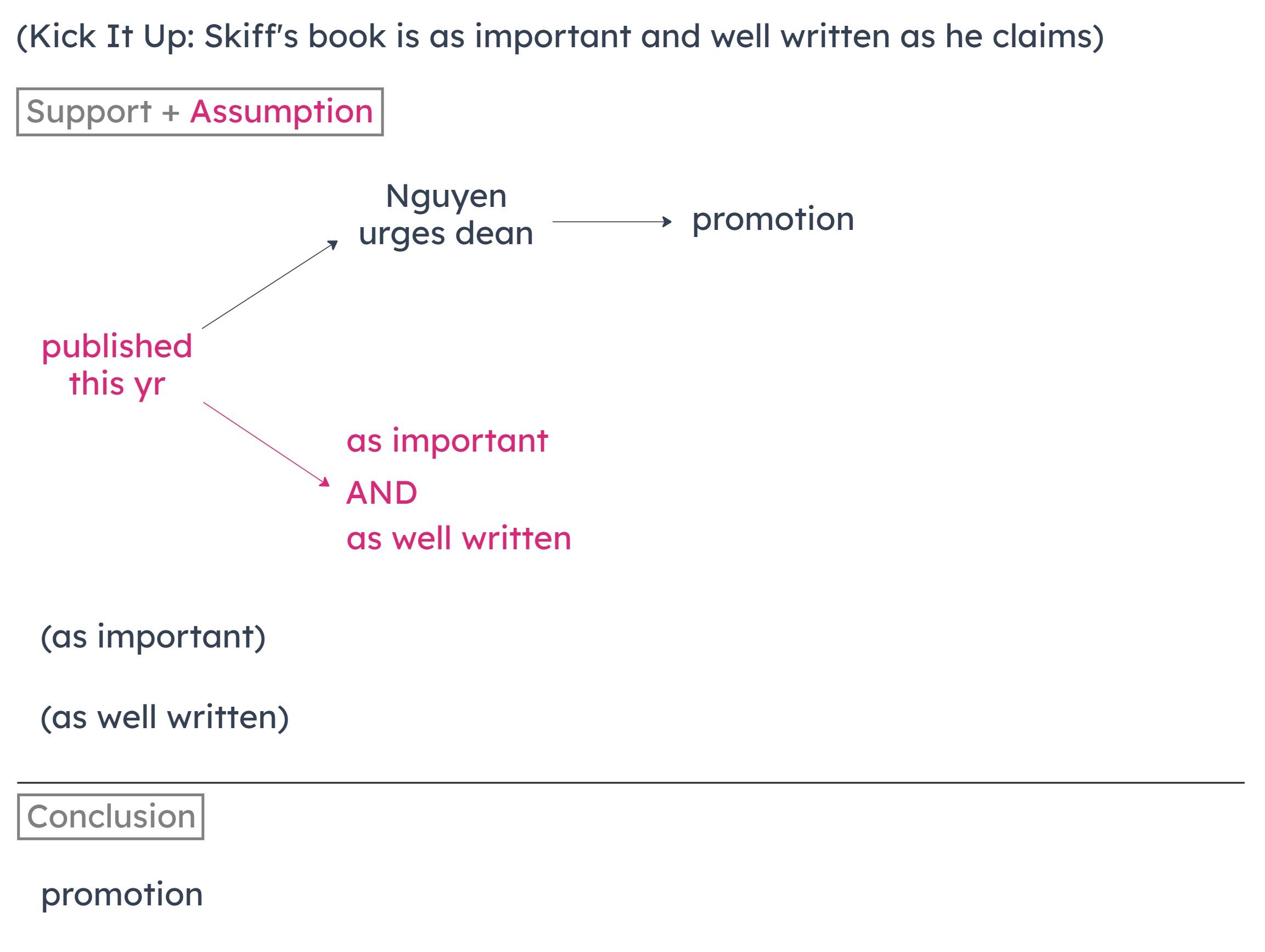Sign up to star your favorites LSAT 139 - Section 4 - Question 21
September 10, 2013We can simplify the conditional conclusion by kicking up the sufficient condition and taking for granted that yes, the book is as important and as well written as claimed.

The premises would lead to the conclusion if we knew that as long as the book is as important and/or as well written as claimed, it will be published this year.
A
Skiff’s book will be published this year if it is as important as he claims it is.

B
Skiff needs to publish a book before he can be promoted.
C
Professor Nguyen believes that Skiff’s book is well written.
D
Skiff’s book will not be published unless it is as important and as well written as he claims it is.

E
Skiff will not be promoted unless Professor Nguyen urges the dean to do so.
This question is difficult because of the obscuring of the premises and conclusion. Here's the premises and conclusion distilled, utilizing the skills we learned in our grammar lessons.
published --> prof. N promise to urge dean to promote S --> prof. N urge dean to promote S --> S promoted
_____________
import & well written --> S promoted
Reducing it, the argument goes:
published --> S promoted
_____________
import & well written --> S promoted
Formulaically, we want to supply the missing premise: import & well written --> published
But, the LSAC did something new this time. They gave us: import --> published
That actually works!
To see why, let's think about an analogous argument.
If you buy milk, then you will use cash. Therefore, if you go to store & gas station, you will use cash.
Formulaically, we want to supply the missing premise: if you go to store & gas station, you will buy milk. But, doesn't that feel a little redundant? What if I just said "if you go to store, you will buy milk."
That also allows us to validly draw the conclusion that "if you go to store & gas station, you will use cash."
In fact, it'll even allow us to validly draw the conclusion that "if you go to store & gas station & mars & russia, you will use cash."
Very clever, those LSAT writers
Sign up to star your favorites LSAT 139 - Section 4 - Question 22
September 10, 2013
A
identifies some changes required for the magazine’s circulation to continue its rapid increase and concludes from this that no other changes are needed
B
equates a reduction in the rate at which the magazine’s circulation is increasing with a decline in the magazine’s circulation
C
draws a conclusion that simply restates a claim that is presented in support of that conclusion
D
takes a single fact that is incompatible with a general claim as enough to show that claim to be false
E
treats an occurrence that will ensure a certain outcome as something that is required for that outcome
Sign up to star your favorites LSAT 139 - Section 4 - Question 23
September 10, 2013
A
It is much easier in principle for genetic traits to be passed from wild plants to their domesticated relatives than it is for such traits to be passed from the domesticated plant to the wild relative.
B
When the ratio of domesticated radishes to wild radishes in the field increased, the speed with which the flower color passed to the wild radishes also increased.
C
Radishes are not representative of crop plants in general with respect to the ease with which various traits are passed among members of closely related species.
D
The flower color of the domesticated radishes had not been introduced into them via genetic engineering.
E
It is more difficult for flower color to be transferred between domesticated and wild radishes than it is for almost any other trait to be passed between any two similarly related plant species.
Sign up to star your favorites LSAT 139 - Section 4 - Question 24
September 10, 2013
A
Parents should praise their children for their achievements.
B
Children whose actions are praised undeservedly eventually learn to discount all words of praise.
C
Parents need to distinguish between their own expectations for their children and what their children are actually capable of accomplishing.
D
Children’s self-esteem will suffer if their parents uniformly praise their attempts to accomplish things regardless of their success or failure.
E
Children will develop low self-esteem if their parents do not praise them when they succeed.
Sign up to star your favorites LSAT 139 - Section 4 - Question 25
September 10, 2013Roger: The dams are already producing electricity at optimal capacity. So regardless of whether they are breached, we will have to find additional energy sources for the region.